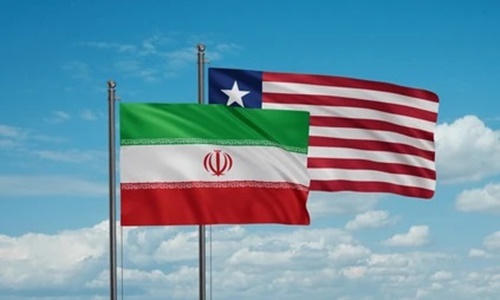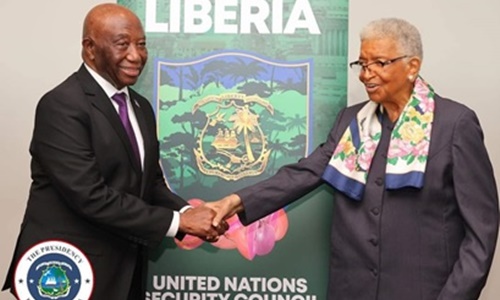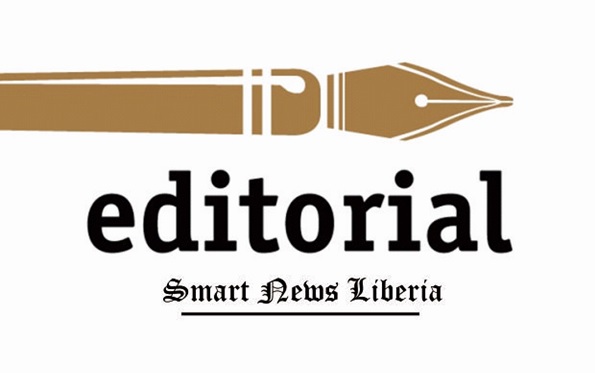MONROVIA – An investigation has uncovered evidence suggesting that the Islamic Republic of Iran is employing covert measures to re-establish its influence in Liberia, a country with a complex history of diplomatic relations with Tehran. Relations between Liberia and Iran deteriorated sharply following the 1979 Iranian Revolution, which saw the rise of the current Islamic regime. However, a thaw in relations occurred after the end of Liberia’s first civil war in 1996, as the political landscape shifted. The subsequent civil unrest in 1999 saw President Charles Taylor pivot away from Western alliances, aligning Liberia with revolutionary movements across West Africa. This shift led to improved ties with Tehran, with Liberia occasionally abstaining from or being absent during UN votes condemning Iran.
Despite this political alignment, economic relations have remained inconsistent and have failed to strengthen significantly. Cultural connections are nearly non-existent, even with a sizable Shiʿi minority in Liberia that lacks adequate representation in the predominantly Christian nation. The Shiʿi community, while present, has not significantly influenced the broader socio-political landscape.
Furthermore, ties between some Liberians and Lebanon, particularly within the diamond trade, have raised concerns regarding potential financial assistance to groups like Hezbollah. This aspect complicates Liberia’s already delicate international relations and raises questions about the influence of foreign actors within its borders. Major Lebanese merchants in Liberia are reported to be known Hezbollah supporters, according to a Christian Lebanese national living and doing business in the country. He noted that many of these individuals are involved in diamond and rice businesses, as well as electrical hardware sales.
Libenese Merchants living in Liberia and other west African nations have been Contributing to Hezbollah. Investigation revealed that some Lebanese Officials were reportedly caught transporting 2 million dollars to Hezbollah’s headquarters in Beirut. The funds were said to come from Libenese nationals from several parts of Africa.
When questioned about whether successive Liberian governments are aware of these individuals, he confirmed their awareness and added, “But do you know that these Hezbollah supporters are very influential in Liberia?”
In recent years, Israel’s increasing ties with Liberia have further complicated Iran’s attempts to secure a foothold in the West African nation. Despite these challenges, Iranian cultural and religious entities continue to make inroads. Evidence shows that in 2014, the London-based World Assembly of Ahl al-Bayt, an organization linked to Tehran, constructed a Shiʿi mosque and school in the Brewerville community of Jah Tondo, indicating an ongoing effort to establish a more substantial presence. The school is a well-equipped facility, with all its equipment, including uniforms, imported. However, the Liberian man behind the establishment of the facility died under mysterious circumstances. The intent of the school was to teach Shiʿa doctrine to Liberian Muslim children.
As Liberia navigates its diplomatic landscape, the growing Iranian influence poses potential risks to its relationships with other nations. The interplay of local dynamics, including the Shiʿi minority’s challenges and Liberia’s commitments to its partnerships, will be critical in determining the future of its foreign relations.
The situation remains fluid, and the implications of Iran’s activities in Liberia will continue to unfold as the international community watches closely. Recent developments underscore the intricate balance Liberia must maintain amidst competing foreign interests, raising questions about the broader impact on regional stability and security. There seem to be little or no movements by the Boakai government to court Iran, but a few individuals of Islamic background are trying to smooth the ground to gain support from the Shiʿa nation.
Iran is classified as a “terrorist nation” by the U.S. and European Union. The country is known to support various militant groups and organizations that some nations, particularly the United States and Israel, classify as terrorist organizations. Groups such as Hezbollah in Lebanon and various Palestinian factions receive funding and military support from Iran. Iran has significant regional influence in the Middle East. Its involvement in regional conflicts, including in Syria, Iraq, and Yemen, has led to accusations of promoting instability and supporting proxy wars. Critics argue that this behavior constitutes state-sponsored terrorism. The U.S. government has designated Iran as a state sponsor of terrorism since 1984, citing its support for non-state actors involved in violent acts against other countries and interests.
The fear of Iran’s presence in Liberia stems from its toxic relationship with Sunni Muslims around the world. With both Sunni and Shiʿi Muslims coexisting in Liberia, Iran’s presence could potentially incite conflict within the Islamic community, one Islamic observer noted.







